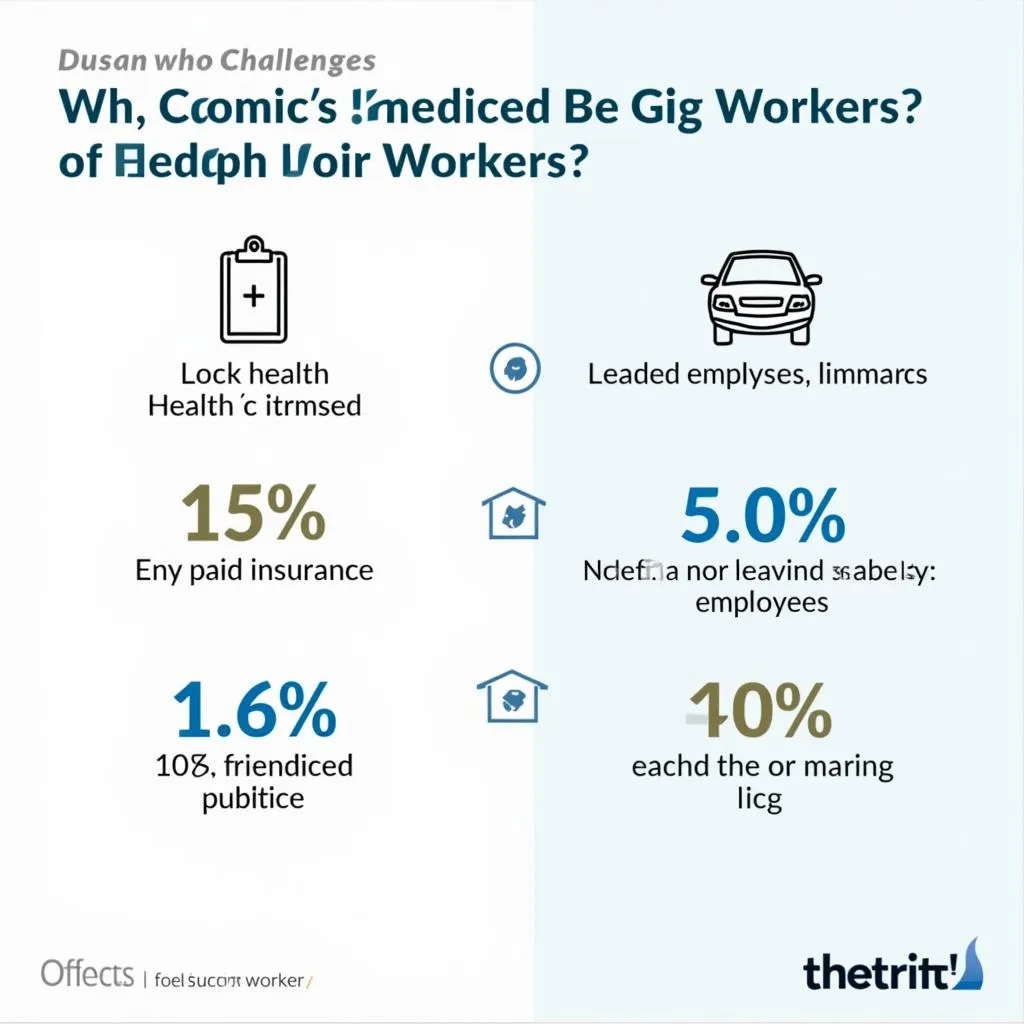The topic of how the gig economy is changing traditional employment has become increasingly relevant in recent IELTS Writing Task 2 exams. Based on analysis of past papers and current trends, this subject is likely to appear more frequently in future tests. Let’s explore a sample question that closely reflects real exam scenarios:
Some people believe that the rise of the gig economy is beneficial for workers, while others argue it is detrimental to workers’ rights and job security. Discuss both views and give your own opinion.
Analyzing the Question
This question requires candidates to:
- Discuss the positive aspects of the gig economy for workers
- Explore the negative impacts on workers’ rights and job security
- Provide a balanced argument considering both viewpoints
- Present their own opinion on the matter
Now, let’s examine sample essays for different band scores, starting with a high-scoring response.
Sample Essay 1 (Band 8-9)
The gig economy, characterized by short-term contracts and freelance work, has revolutionized the traditional employment landscape. While some argue that this shift benefits workers by offering flexibility and diverse opportunities, others contend that it undermines workers’ rights and job security. This essay will explore both perspectives before presenting my own viewpoint.
Proponents of the gig economy emphasize its numerous advantages for workers. Firstly, it provides unprecedented flexibility, allowing individuals to choose their working hours and locations. This autonomy can lead to improved work-life balance and increased job satisfaction. Additionally, the gig economy offers diverse income streams, enabling workers to explore various industries and develop a wide range of skills. This versatility can make individuals more adaptable in an ever-changing job market.
 Gig economy flexible work
Gig economy flexible work
However, critics argue that the gig economy erodes workers’ rights and job security. One significant concern is the lack of traditional employment benefits, such as health insurance, paid leave, and retirement plans. Gig workers often find themselves in precarious financial situations, especially during economic downturns or personal emergencies. Moreover, the absence of long-term contracts can lead to income instability and heightened stress levels, as workers constantly seek new opportunities to maintain a steady income.
 Lack of benefits in the gig economy
Lack of benefits in the gig economy
In my opinion, while the gig economy offers valuable opportunities for flexibility and skill development, it should not completely replace traditional employment models. A balanced approach is necessary to harness the benefits of both systems. Governments and companies should work together to create regulations that protect gig workers’ rights while maintaining the flexibility that makes this model attractive. This could include measures such as portable benefits systems, minimum wage guarantees for gig work, and clearer classification of worker status.
In conclusion, the gig economy presents both opportunities and challenges for workers. By addressing the concerns surrounding workers’ rights and job security while preserving the flexibility and diversity of opportunities, we can create a more equitable and sustainable employment landscape for the future.
(Word count: 309)
Essay Analysis (Band 8-9)
This essay demonstrates excellence in several key areas:
- Task Response: The essay fully addresses all parts of the task, discussing both views and providing a clear personal opinion.
- Coherence and Cohesion: The essay is well-organized with clear paragraphing and effective use of cohesive devices.
- Lexical Resource: A wide range of vocabulary is used accurately and appropriately, including topic-specific terms like “gig economy,” “freelance work,” and “income instability.”
- Grammatical Range and Accuracy: The essay showcases a variety of complex sentence structures with minimal errors.
- Development of Ideas: Each point is well-developed with relevant examples and explanations.
Sample Essay 2 (Band 6-7)
The gig economy has become more popular in recent years, changing how people work. Some think it’s good for workers, while others believe it harms their rights and job security. This essay will look at both sides and give my opinion.
On the positive side, the gig economy gives workers more flexibility. They can choose when and where to work, which helps with work-life balance. For example, a parent can work around their children’s schedules. Also, gig workers can do different types of jobs, which helps them learn new skills and possibly earn more money.
 Work-life balance in the gig economy
Work-life balance in the gig economy
However, there are also negative aspects to consider. Gig workers often don’t get benefits like health insurance or paid vacation, which regular employees usually receive. This can make their lives less stable and more stressful. Another problem is that gig work can be unpredictable, and workers might not know how much money they’ll make each month.
On the positive side, the gig economy gives workers more flexibility. They can choose when and where to work, which helps with work-life balance. For example, a parent can work around their children’s schedules. Also, gig workers can do different types of jobs, which helps them learn new skills and possibly earn more money.
In my opinion, the gig economy has both good and bad points. I think it can be helpful for some people who want flexibility, but it shouldn’t replace all traditional jobs. The government should make rules to protect gig workers while still keeping the benefits of flexible work.
To conclude, the gig economy brings opportunities and challenges. We need to find a balance between flexibility for workers and protecting their rights to create a fair system for everyone.
(Word count: 249)
Essay Analysis (Band 6-7)
This essay demonstrates competence in several areas but falls short of the highest band scores:
- Task Response: The essay addresses all parts of the task, but the ideas could be more fully developed.
- Coherence and Cohesion: The essay is generally well-organized, but the use of cohesive devices is less sophisticated than in the Band 8-9 essay.
- Lexical Resource: The vocabulary is adequate for the task, but there is less precision and sophistication compared to the higher band essay.
- Grammatical Range and Accuracy: The essay uses a mix of simple and complex sentences, with some errors that do not impede communication.
- Development of Ideas: Ideas are presented clearly but could be supported with more specific examples and deeper analysis.
Key Vocabulary for IELTS Writing on the Gig Economy
- Gig economy (noun) /ɡɪɡ iˈkɒnəmi/: An economic system characterized by short-term contracts and freelance work.
- Freelance (adjective/verb) /ˈfriːlɑːns/: Working for different companies at different times rather than being permanently employed by one company.
- Precarious (adjective) /prɪˈkeəriəs/: Not securely held or in position; dangerously likely to fall or collapse.
- Income stability (noun phrase) /ˈɪnkʌm stəˈbɪləti/: The consistency and reliability of one’s earnings over time.
- Work-life balance (noun phrase) /wɜːk laɪf ˈbæləns/: The division of one’s time and focus between working and family or leisure activities.
- Portable benefits (noun phrase) /ˈpɔːtəbl ˈbenɪfɪts/: Employment benefits that a worker can take from job to job.
- Income diversification (noun phrase) /ˈɪnkʌm daɪˌvɜːsɪfɪˈkeɪʃn/: The practice of varying income sources to reduce financial risk.
- Job security (noun phrase) /dʒɒb sɪˈkjʊərəti/: The assurance that an individual will keep their job without the risk of becoming unemployed.
- Flexible schedule (noun phrase) /ˈfleksəbl ˈʃedjuːl/: A work arrangement that allows employees to vary their arrival and departure times.
- Traditional employment (noun phrase) /trəˈdɪʃənl ɪmˈplɔɪmənt/: The conventional full-time, long-term work arrangement with a single employer.
Conclusion
The topic of how the gig economy is changing traditional employment is likely to remain relevant in future IELTS Writing Task 2 exams. To prepare effectively, practice writing essays on related themes such as:
- The impact of technology on job markets
- The future of work in the digital age
- Balancing worker flexibility with job security
- The role of government in regulating new forms of employment
Remember to structure your essays clearly, use a range of vocabulary and complex sentence structures, and provide balanced arguments supported by relevant examples. We encourage you to practice writing an essay on this topic and share it in the comments section for feedback and discussion with fellow IELTS candidates.
 Future of work and the gig economy
Future of work and the gig economy
The effect of climate change on coastal cities is another pressing global issue that you might encounter in IELTS Writing Task 2. As you prepare for your exam, consider how changes in employment patterns and environmental challenges are interconnected in our rapidly evolving world.


